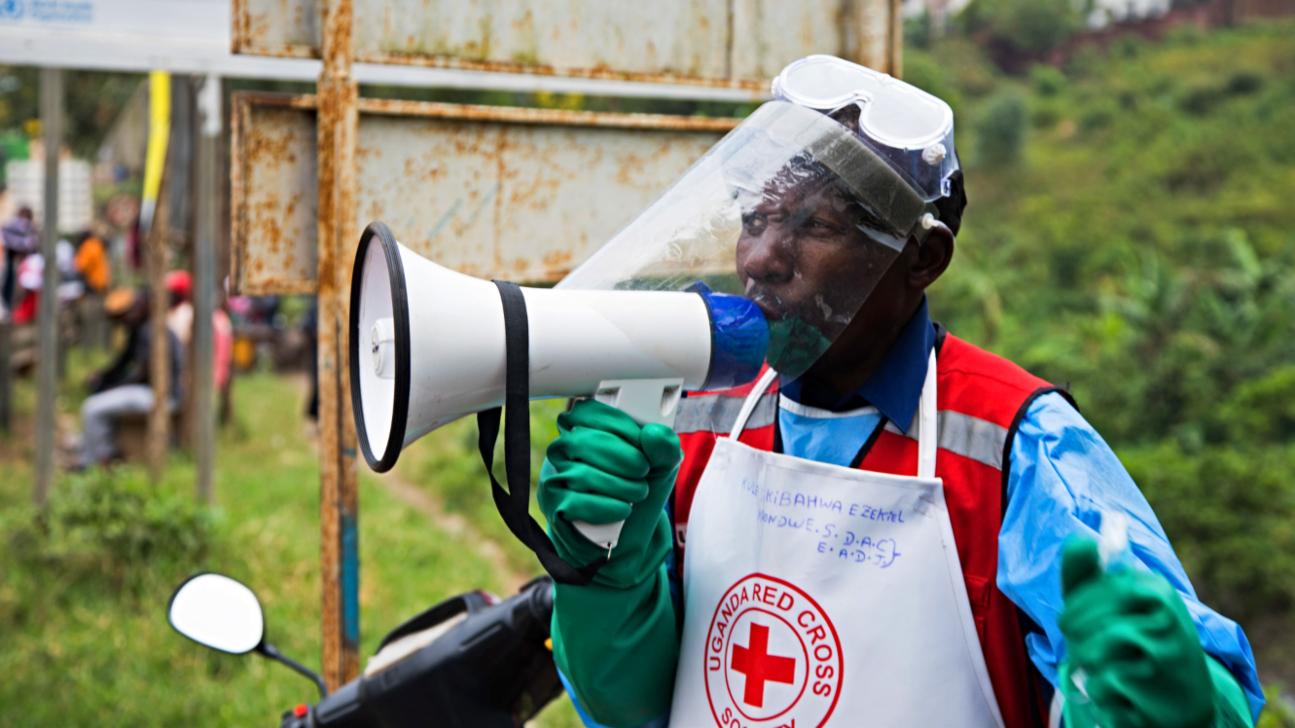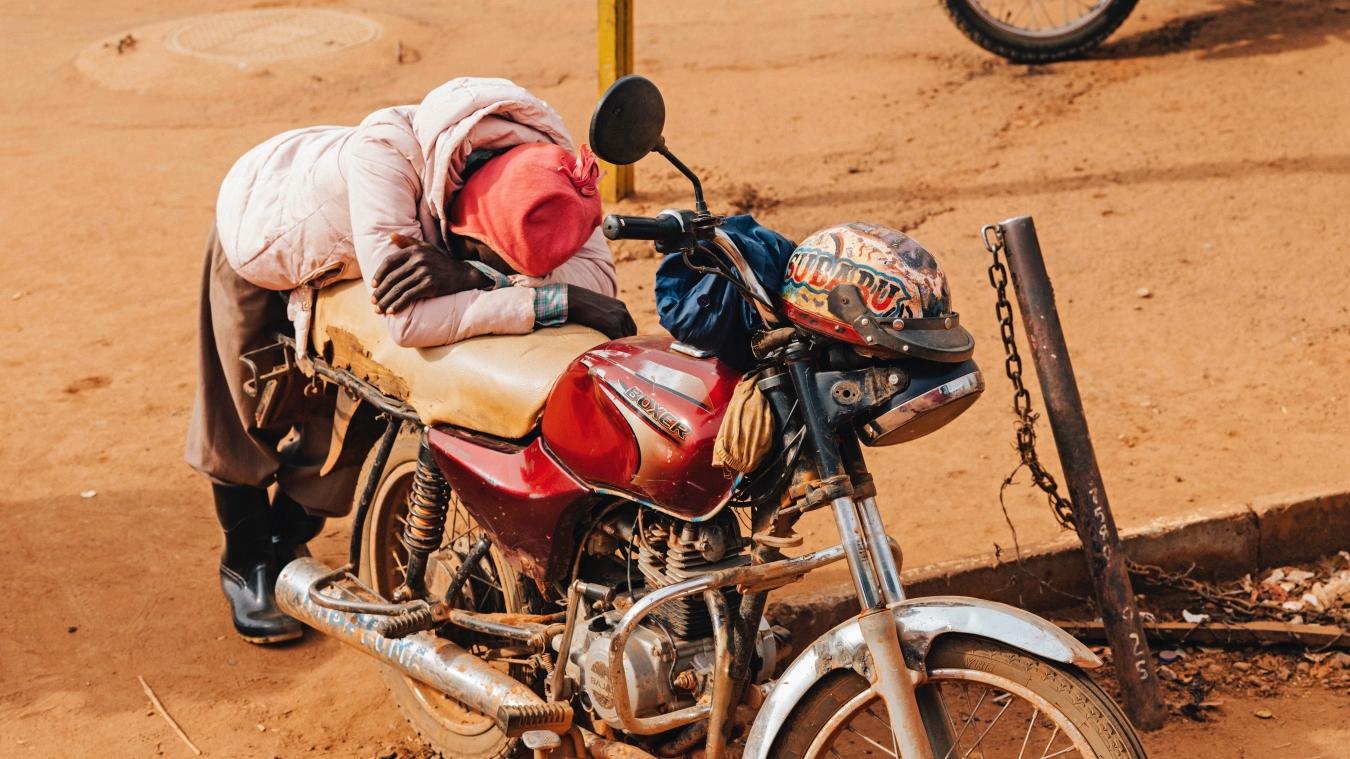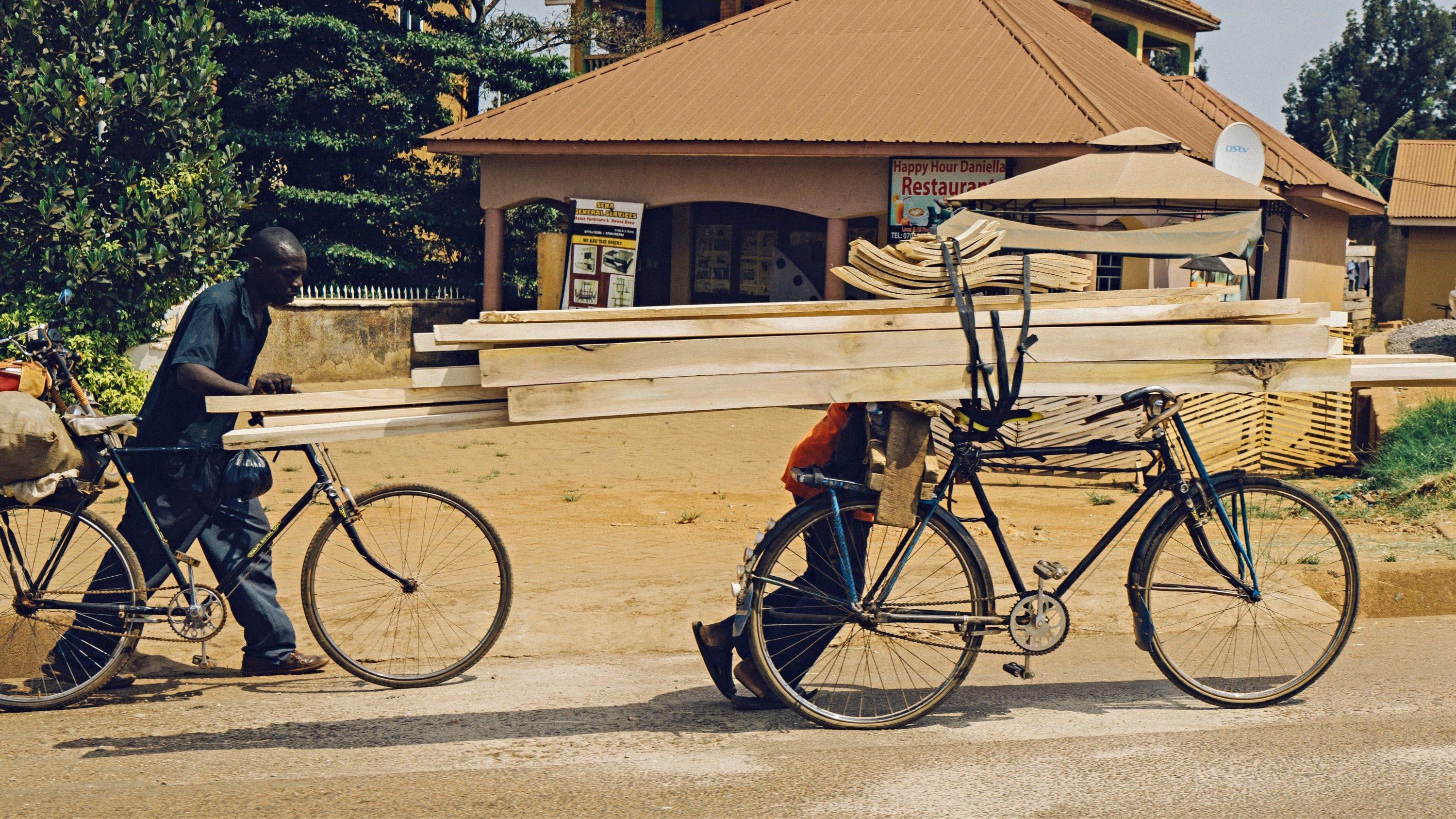Responses to COVID-19 vary across Uganda, with northern regions seeing resistance to public health efforts to enforce quarantine. For some communities the location of isolation and treatment centres, in particular, has caused public outrage, reviving memories of the 2000 Ebola outbreak.
This post is part of a series exploring the effects and experiences of Covid-19 prevention in Uganda.
On 24 March 2020, a case of COVID-19 was recorded in Adjumani District, which neighbours Moyo in northern Uganda. Unlike in Arua, 150km away, where no cases have been registered and young men are increasingly contesting the existence of the coronavirus, in Moyo and Adjumani there are heightened fears of contracting COVID-19.
Though the reported case was a Ugandan citizen, local concerns are particularly directed at refugees crossing over international borders from South Sudan. Currently in Adjumani, there are 203,906 refugees of which 115 are asylum seekers. These concerns have prompted the development of a Local Government Task Force for monitoring, reporting and undertaking surveillance on the virus.
How is COVID-19 understood in Moyo, Uganda?
In the Ma’di language of the region, COVID-19 is referred to as China ni laza (Chinese disease) or Okolo gbworo dridi rii (itching cough). People have sought to explain the origins of COVID-19 in diverse ways. While some attribute the virus’ emergence to biological warfare between the Chinese and Americans, others explain the virus as a ‘punishment from God’. Catholic actors have been prominent advocates in equating COVID-19 to individual sin, advocating the need for repentance. One influential elder in Lefori Sub County, attributing COVID-19 to evil spirits, was reported to have made offerings at his ancestral shrine in a bid to reverse the sickness.
As in Arua, while these diverse explanations may encourage additional interventions, notably prayer, most people in Moyo and Adjumani have accepted public health measures. Many have improvised hand-washing facilities, endeavoured to implement the social distancing guidelines heard over the radio and are abiding by the 7.00pm curfew set by the government.
People of Moyo find the lockdown restrictions burdensome, but they also fear getting sick. Now almost any sickness is expected to be China ni laza, despite the lack of testing. In such cases, individuals self-quarantine and often avoid health services. While some friends and relatives may ignore social distancing, people in Moyo have a distinct fear of strangers passing through.
Communal suspicions of positive infections
In Moyo and Adjumani, villagers have simultaneously been involved in identifying suspected cases. One Catholic priest in Metu Sub County was forced into self-quarantine by their neighbours. The priest was known to have a travel history, having spent time in South Sudan. His neighbour feared he may not have undergone the mandatory process of quarantine for visitors coming into Uganda.
In March, a Catholic Priest from South Sudan was reported to be hiding in Moyo mission, fearing to return home. Communities in Laropi brought this to the attention of the Internal Security Officer (GISO), who coordinated his arrest. In the process, the priest was beaten. Fortunately, all the suspected cases were found to be negative by the Uganda Virus Research Institute.
Simultaneously, villagers have resisted the establishment of treatment centres, on the basis that these sites could enable the spread of COVID-19 among the general population.
Resistance in Adjumani and Gulu based on memories of war and Ebola
After the confirmed case in Adjumani, the District Task Force moved to establish rapidly an isolation centre at a local health centre. This move was resisted by many in Adjumani, who argued the money would be better spent transporting the suspected positive cases to Mulago National Referral Hospital in Kampala. Resistance grew violent, with community members gathering with machetes, arrows and spears to resist the centre’s establishment. Consequently, the location of the isolation centre was shifted to Adjumani District General Hospital. When the situation reached the government’s attention, the Minister for Primary health care Hon. Dr. Joyce Moriku Kaducu, on advice of the National Task Force and inter-ministerial committee, decided that the positive patient in Adjumani district be transferred and managed from Gulu Regional Referral Hospital due to Adjumani’s inadequate facilities, along with new cases.
This move was resisted, however, by the Gulu District Chairperson Hon. Mapenduzi Ojara, who explained that history would not repeat itself; in 2000 an Ebola epidemic killed over 224 Acholi people, the Chairperson stressing that the district was left without wide national support. Similarly, Hon. Odonga Otto, Member of Parliament for Aruu County, emphasised the government’s negligence in exposing the Acholis to the Ebola virus in 2000 by concentrating all Ebola cases, from other parts of the country, in Gulu. He said this was a plan mooted to kill the Acholis (who have a history of persecution), which he stressed will not happen this time under his watch.
After the MP for Aruu County alluded to these ethnic grudges, the minister Dr. Joyce Moriku Kaducu was left gasping, with her hands twisted down. She said tanyiledi rii nya mundu i, literally meaning ‘the only way out is upon you’. She had to return with her patient to Adjumani district, which led to Adjumani being touted in media gazettes as a regional isolation centre enforced by the government.
The Ministry of Health sent officers to support the efforts of the Adjumani district in the fight against COVID-19. The district received assorted medical supplies and 160,000USD was disbursed by the Government to facilitate COVID-19 related activities in the district.
Since the dramatic refusal of the case from Gulu, the patient was managed from Adjumani hospital until his discharge on 15 April 2020 when he twice tested negative. His contacts, especially close family, were put under self-quarantine in Molupkoda ward, Adjumani Town Council, under strict supervision of the Village Health Team and the police. The family was not allowed to leave the compound for any social services, and the government took charge of their living expenses during the quarantine period. The village health team would buy food and other items and deliver it at the entrance to the home, and alert them of its arrival.
The politics of health facilities’ location
In Moyo, the choice of isolation centre for COVID-19 suspects resulted in mixed reactions. Communities from Pamoju and Pamoti wards in Moyo Town Council barricaded the road to an isolation centre at the District Farmers Institute, for fear of the virus spreading into their communities believed to be free of cases. This area is slightly away from the busy town of Moyo, served with electricity and water public utilities, and good access to the site.
The community believed that the District Chairman, Mr Anyama Williams, and the Resident District Commissioner (in charge of local development and investments programmes) dually decided the location of the isolation centre in the Pamoju ward, Adjumani Town Council, as opposed to the Dufile Sub County where the chairman was from.
This perception further angered the community to seek revenge by attempting to burn the District Chairperson’s home. Members of the community mobilised and marched towards Adua, along the Moyo-Arua road. As they approached, they met the police who were deployed after receiving this intelligence information, and the efforts of the community members were thwarted.
The people, on failing to destroy the chairman’s house, have promised to seek revenge during the 2021 elections by voting him out of office. This may not be the first time the virus ignites a new political fall-out.





